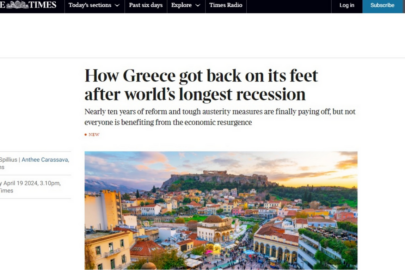The debate on the exit of Greece from the memoranda and its transition to a “new phase” as described by the Greek government has begun a while ago, but it was revived before and after the Eurogroup meeting on Thursday.
The prevalent solution seems to be progressing to a post-memorandum Hellenic economy era with a precautionary credit line of support but also close oversight and the IMF’s involvement in a way that has not yet been determined. However, this outcome has not been discounted by markets and analysts
In a nutshell, the conclusion that came from a meeting of Finance Ministers of the Eurozone was: Evaluation by the Troika first, then the discussion about debt, while it seems that the market will start to learn yet another English language term: “ECCL” (Enhanced Conditions Credit Line)
The political risk -for early elections- that foreign investors claim is there, but in the case of the Greek market, it is used in order to buy Greek stocks on the cheap. At the same time the strongly punitive feeling is felt by the attitude towards banks, which recently passed the stress tests.
One and a half hour after the start of the meeting, and while everyone was waiting for just another day at the office, liquidations began, reaching 3.5% and then ending at 5%. The Market Index closed at a decline of 5.38% at 910.50 units, while spreads were launched up to 8%.
The market was left distraught by international agencies’ expectations of the end of the Eurogroup.
According to Bloomberg, the Eurozone stated that Greece must remain under tight fiscal control before it exits the rescue program, underlining the political risks for the current Prime Minister who wants to avoid early elections.
Analysts estimate that the Eurogroup’s result does not ensure political stability in the country since the IMF will remain in the program as well as European partners, something which will not help with the Greek side’s flexibility during negotiations.
At the same time, the yield of the 10 year Greek bond rose to over 8% when it was at 7.8% on Thursday.


































